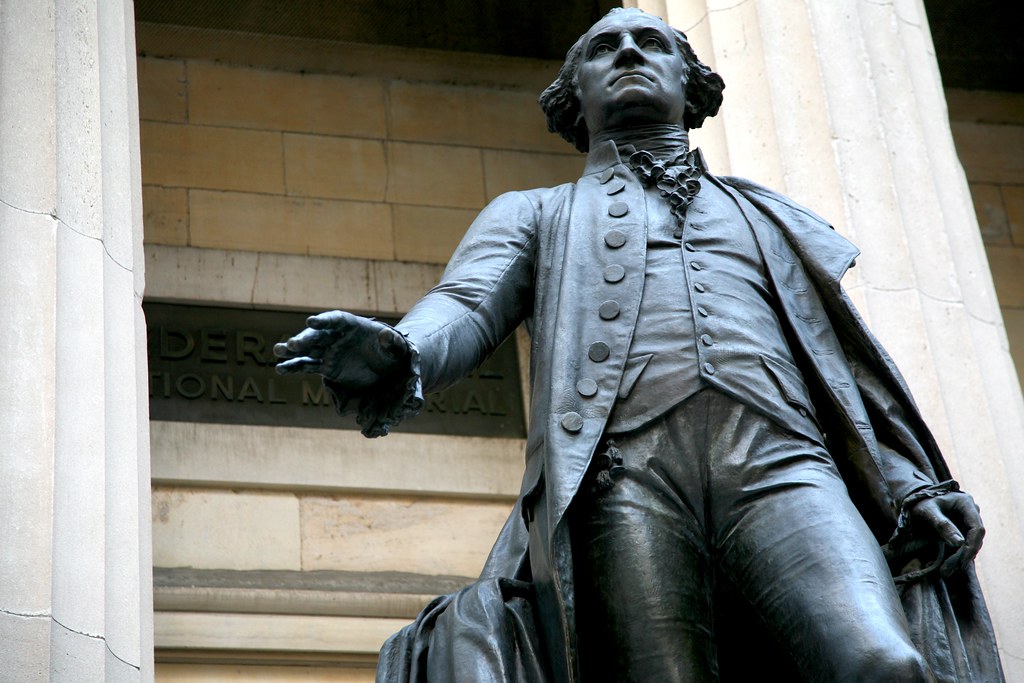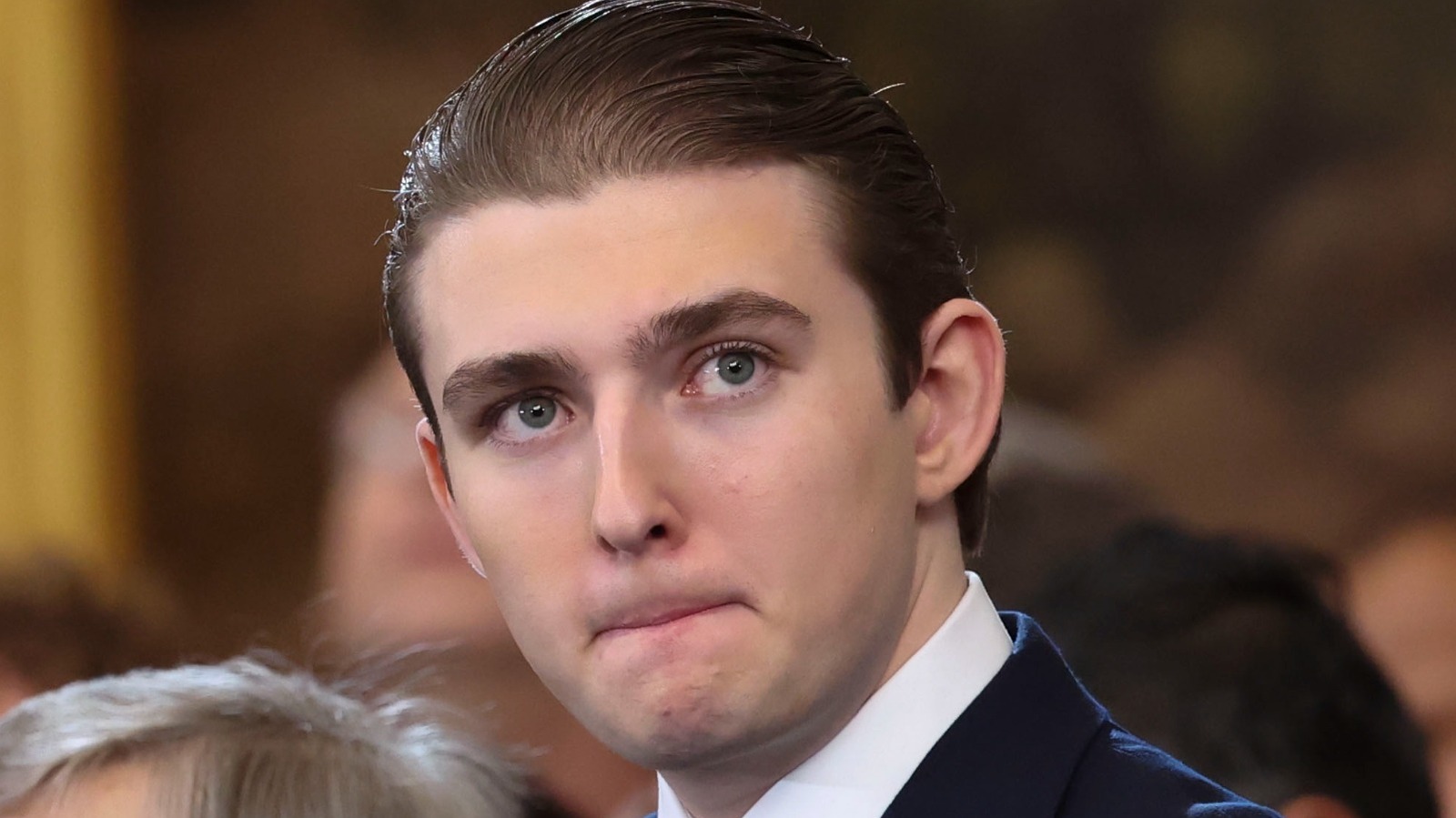
Influential right-wing activist Charlie Kirk died at age 31 after being fatally shot in the neck during a Utah college campus speaking event. Officials have labeled the incident a “political assassination” at Utah Valley University, sparking nationwide discussion on political rhetoric and public safety. Mr. Kirk, a prominent conservative voice and close ally of former President Donald Trump, was renowned for his impassioned campus appearances and debates, significantly shaping a new generation of conservatives.
His untimely death sent shockwaves across the political spectrum, drawing swift condemnations of political violence from leaders on both sides. Kirk’s career, which began in his teenage years, saw him build Turning Point USA into a significant force in conservative activism, mobilizing thousands of young people and influencing national discourse. This assassination, at an event intended for dialogue, tragically highlights the intense polarization and escalating tensions within American society.
This article will delve into the details of the assassination, immediate reactions, law enforcement efforts, and the formative aspects of Kirk’s career and organization.
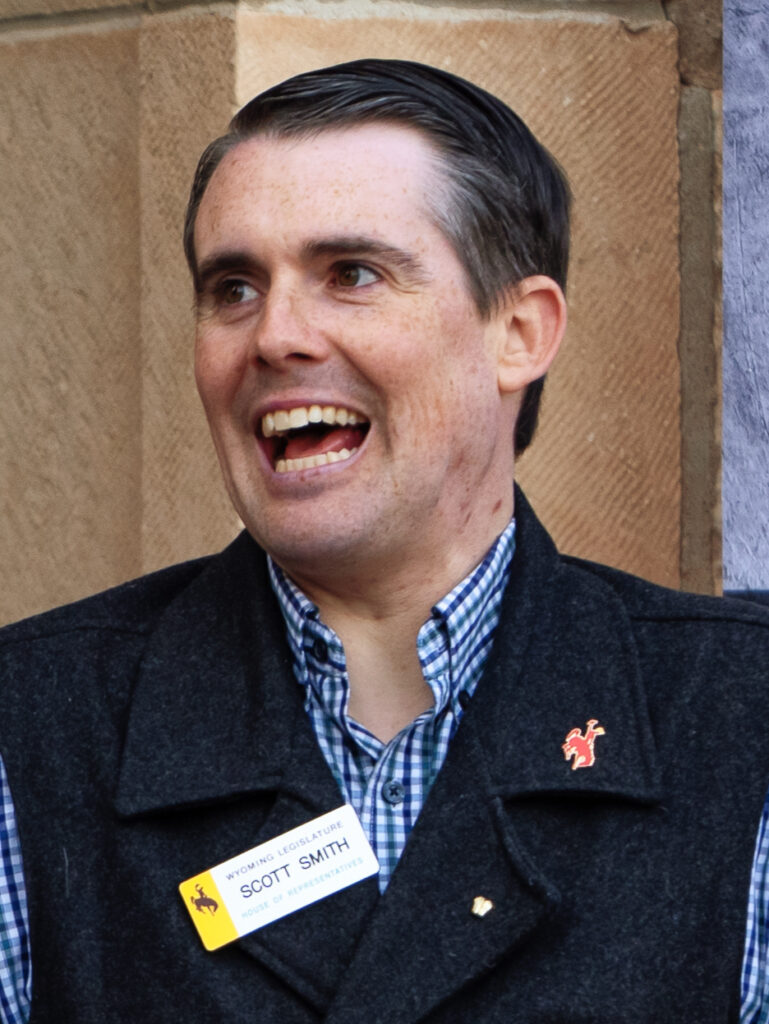
1. **The Assassination at Utah Valley University**Influential right-wing activist Charlie Kirk, 31, was fatally shot during a speaking engagement at Utah Valley University in Orem, Utah. The event, part of his “American Comeback Tour,” took place under a tent in a courtyard, drawing approximately 3,000 attendees to hear his conservative views and participate in a question-and-answer session. This public forum was a characteristic element of Kirk’s strategy to engage college students across the nation.
The tragic incident unfolded about 20 minutes into the Q&A segment. Kirk was addressing a question regarding the prevalence of mass shooters, specifically debating whether to include gang violence in the statistics. Eyewitness Justin Hicken noted Kirk was “about 60 to 90 seconds” into his response when a single, loud rifle shot abruptly shattered the event’s atmosphere, sending the large crowd into immediate panic and chaos.
Eyewitnesses described the horrifying moment Kirk was struck; he began bleeding heavily from his neck and collapsed within seconds. This targeted act, occurring in broad daylight, was swiftly labeled a “political assassination” by officials. Utah Valley University, despite having defended Kirk’s appearance due to its “commitment to free speech,” expressed profound shock and sadness at the death, grieving with its community over the unspeakable tragedy.
The event’s location in Orem, Utah, approximately 35 miles from Salt Lake City, highlights Kirk’s consistent method of direct engagement on college campuses. These venues often presented environments where his conservative viewpoints faced considerable opposition. His death at such a public event tragically underscores the escalating risks now associated with political discourse in an increasingly polarized national landscape.
Read more about: Arnold Schwarzenegger’s Urgent Warning: Navigating America’s Democracy Cliff After Charlie Kirk’s Assassination
2. **Immediate Aftermath and Eyewitness Accounts**The sudden rifle shot and Charlie Kirk’s swift collapse triggered immediate and widespread panic among the thousands at Utah Valley University. Eyewitness Justin Hicken described the chaotic scene to The Independent, recalling, “I saw blood spurting from Charlie, his body kind of recoiled, everybody started screaming.” Initial shock quickly gave way to a desperate scramble for safety as the crowd reacted instinctively to the gunfire and the sight of Kirk falling.
Hicken further detailed the harrowing moments: “People dropped to the floor, a whole bunch of bodies all over, just crazy stuff.” Amidst terrifying uncertainty, individuals on the ground found themselves surrounded by others, praying no more shots would be fired. The large number of attendees meant the immediate aftermath was characterized by profound confusion and fear, as people sought cover and tried to comprehend the unfolding tragedy.
In response, Utah Valley University swiftly issued a campus alert, ordering immediate closure and class cancellation. Students and others on campus were explicitly instructed to leave without delay. This decisive action aimed to secure the area, mitigate further risks, and facilitate law enforcement’s investigation by minimizing public presence.
Campus police chief Jeff Long later expressed regret over the event’s security measures. “You try to get your bases covered, and unfortunately, today, we didn’t,” Long stated, acknowledging the tragic incident. His comments reflected the profound impact on the university community, highlighting the challenges of protecting public figures at open campus events in today’s volatile political climate.
Read more about: A Chain of Events: Unraveling the Traffic Stop, Dual Chases, and Security Incident at CIA Headquarters

3. **Law Enforcement Response and Suspect Information**Federal and state law enforcement agencies immediately launched a comprehensive investigation following Charlie Kirk’s assassination. The Federal Bureau of Investigation swiftly appealed for public assistance, issuing an official statement on X urging citizens to “Submit tips regarding today’s shooting at Utah Valley University.” This underscored the incident’s gravity and the immediate need for external information to identify the perpetrator.
Initial law enforcement reports concerning suspects were fluid. FBI director Kash Patel first announced that the person who “took the life of Charlie Kirk is now in custody.” However, Patel later clarified that this individual had been released after an interview, stating, “Our investigation continues and we will continue to release information in [the] interest of transparency.” A campus alert also initially reported an arrest, contributing to early confusion.
The Utah Department of Public Safety further clarified that “no current ties to the shooting” existed with the two people initially detained. This meant initial detentions did not yield the actual perpetrator, necessitating a broader search. The fluid nature of these early reports highlighted the investigation’s complexity and the challenge of quickly identifying an assailant in a chaotic environment.
Two days after Kirk’s killing, a significant breakthrough occurred with the arrest of 22-year-old Tyler Robinson. Authorities stated their belief that Robinson acted alone in the assassination. This development provided crucial clarity, identifying a named suspect and initiating the next phase of legal proceedings in this high-profile case.
Read more about: U.S. Navy’s Caribbean Operations: An In-Depth Look at Vessel Interdictions, Escalating Tensions with Venezuela, and Legal Scrutiny
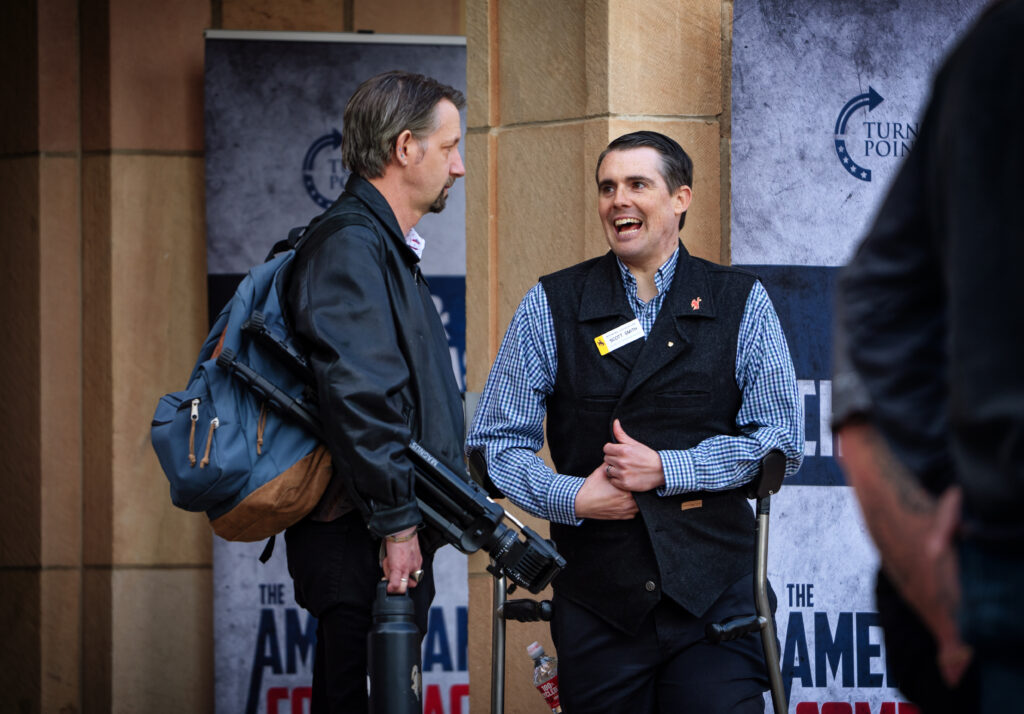
4. **President Trump’s Initial Reaction and Tributes**Former President Donald Trump, a close ally and confidant, immediately reacted to Charlie Kirk’s death. Trump announced Kirk’s passing on Truth Social before official confirmation from his family or Turning Point USA, highlighting their deep personal and political connection. This swift public statement set the tone for conservative mourning.
In his initial post, Trump eulogized Kirk with effusive praise, calling him “The Great, and even Legendary, Charlie Kirk.” He lauded Kirk’s unique ability to connect with young Americans, writing, “No one understood or had the Heart of the Youth in the United States of America better than Charlie.” Trump’s message conveyed profound loss and admiration, concluding, “He was loved and admired by ALL, especially me, and now, he is no longer with us.”
Later, in an Oval Office address, President Trump publicly expressed profound sorrow and anger over the assassination. He stated he was “filled with grief and anger,” and that “Charlie inspired millions.” Trump also blamed “those on the radical left” for inflammatory rhetoric, asserting that comparing “wonderful Americans” like Kirk to “Nazis” was directly responsible for “terrorism that we’re seeing in our country today.”
To honor Kirk, the president ordered American flags lowered to half-staff until September 14. This gesture, typically for national figures, underscored Kirk’s significant stature within conservative circles and the Trump administration. Trump further described Kirk to the New York Post as “a very, very good friend of mine and he was a tremendous person,” solidifying the public image of their strong bond.
Read more about: Navigating the Fed’s Rate Cut: A Comprehensive Guide to How Monetary Policy Will Reshape Your Mortgage and Finances for the Next Decade

5. **Kirk’s Early Life and the Genesis of Turning Point USA**Charlie Kirk, born October 14, 1993, in the Chicago suburbs, eventually dedicated his life to political activism. His academic journey was brief; after attending community college, he chose to drop out, fully committing to organizing. This early decision signaled a clear path, prioritizing direct action and advocacy over traditional education.
In 2012, at just 18, Kirk co-founded Turning Point USA with William Montgomery, a tea party activist. Conceived in suburban Chicago, its mission was to counter liberal organizing platforms. Their primary objective was to “proselytize on college campuses for low taxes and limited government,” aiming to introduce conservative principles into academia, often seen as left-leaning.
Turning Point USA did not achieve immediate success; its early trajectory was challenging. However, Kirk’s unique “zeal for confronting liberals in academia” proved highly attractive. This passion eventually garnered attention and support from an “influential set of conservative financiers.” They recognized in Kirk a fresh voice and a bold strategy for engaging young voters and advancing conservative ideals.
This foundational period established the groundwork for a significant conservative movement. Kirk’s ability to articulate his views, even in challenging environments, coupled with his clear vision for youth engagement, drew crucial financial backing and mentorship. Though starting modestly, the organization was strategically positioned to become a formidable force, significantly impacting youth conservative activism across the United States.
Read more about: TMZ’s Public Reckoning: Unpacking the ‘Tone Deaf Laughter’ Controversy During Charlie Kirk Death Coverage
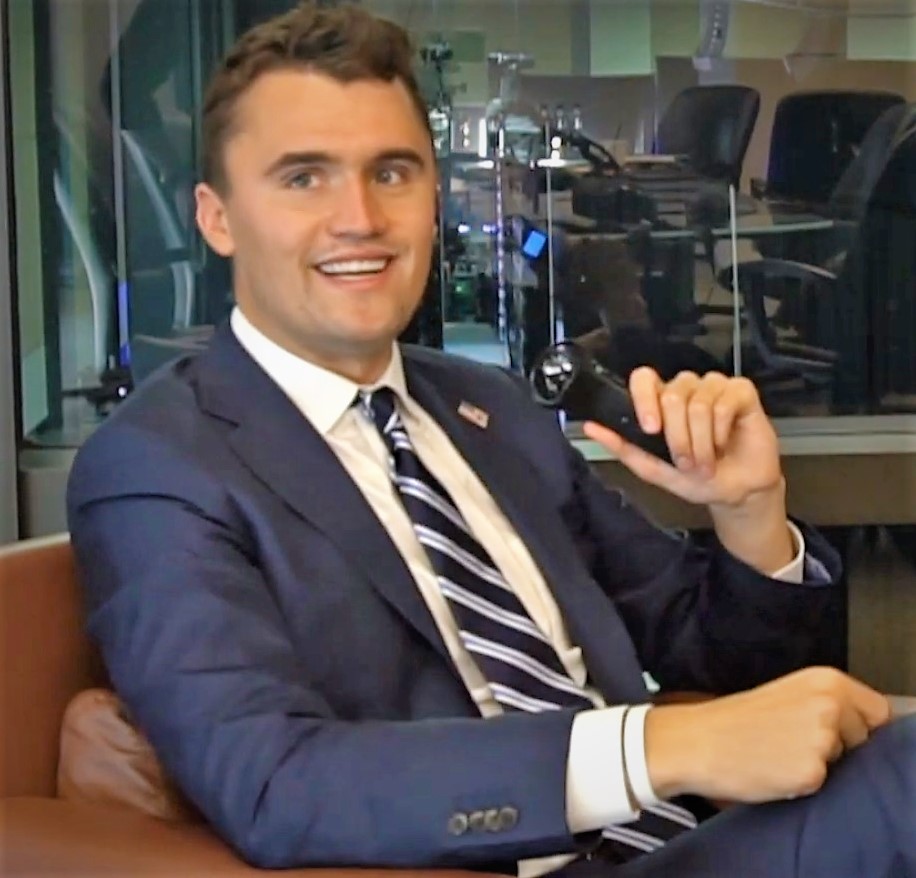
6. **The Rise of Turning Point USA as a Conservative Force**Under Charlie Kirk’s leadership, Turning Point USA rapidly evolved into a central pillar of the modern conservative movement. After initial struggles, the organization strategically embraced Donald Trump following his 2016 GOP nomination, propelling it into the “center of the right-of-center universe.” Kirk served as a personal aide to Donald Trump Jr. during the general election campaign, solidifying the group’s ties to the Trump movement.
Turning Point USA experienced remarkable growth, adding “dozens of campus chapters a year” and “displacing older conservative youth organizations.” It claimed “more than 250,000 student members,” reflecting widespread appeal and effective outreach. Kirk adeptly packaged public appearances with “slick backdrops and high-value productions,” making events compelling and visually engaging.
The group offered more than high-profile speakers; it provided “training, networking and organizing” for members, cultivating a tight-knit network of activists and future political figures. This comprehensive strategy was evident in its political wing, which “helped run get-out-the-vote efforts for Trump’s 2024 campaign,” notably energizing conservatives in Arizona. There, Trump secured a five-point victory after narrowly losing in 2020, offering vindication for Kirk’s “sharp-elbowed, culture-war-oriented conservatism.”
With increasing influence, money flowed into the organization, and Kirk’s personal wealth grew, including a “$4.75 million Spanish-style estate” in Arizona. However, “Turning Point steered millions of dollars to contractors owned by Kirk and his associates,” a practice that drew skepticism from some Republicans. Despite this, the group’s role in mobilizing younger voters contributed to its perceived success and solidified its position.
Read more about: Tricolor’s $200M Fraud: Unpacking the Collapse of a Subprime Auto Giant and Its Ripple Effects on US Banking
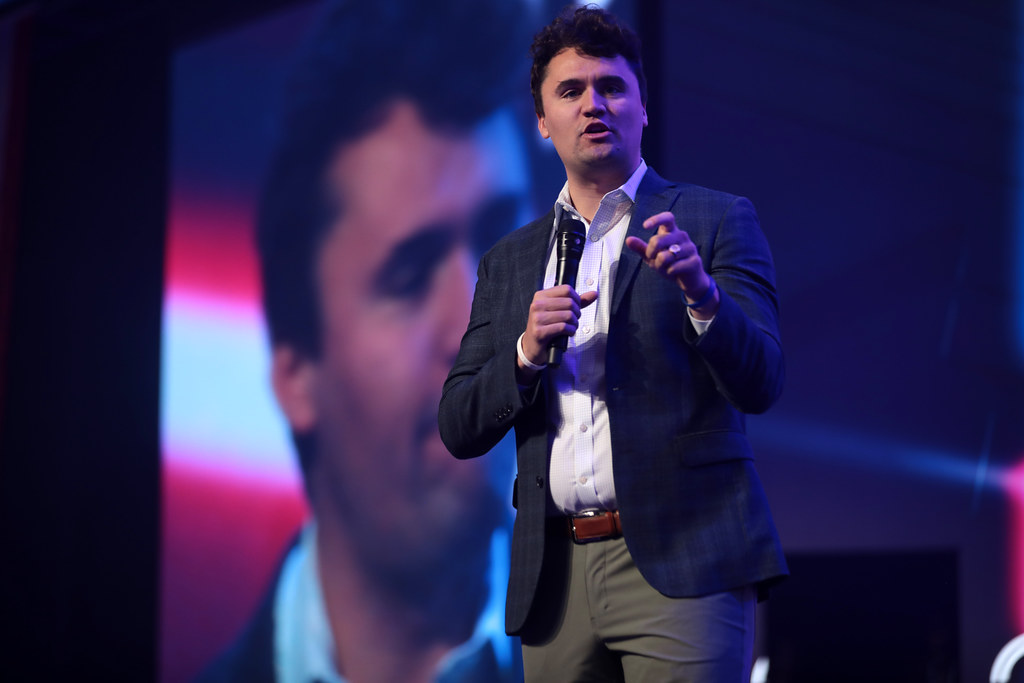
7. **Charlie Kirk’s Pivotal Alliance with Donald Trump**Charlie Kirk cultivated a profound and politically significant alliance with former President Donald Trump, a relationship that fundamentally shaped both Kirk’s public profile and the trajectory of Turning Point USA. Mr. Trump often announced Kirk’s death on Truth Social before official confirmations, underscoring their deep personal and political bond. He lauded Kirk as “The Great, and even Legendary, Charlie Kirk,” emphasizing Kirk’s unparalleled ability to connect with “the Heart of the Youth in the United States of America.”
This close connection translated into substantial influence within Trump’s political orbit and administration. Kirk served as an unofficial adviser during Trump’s 2016 campaign and later became a trusted confidant. He was credited with being key to energizing and mobilizing the youth vote for the president, particularly through ground game efforts in states like Arizona, Georgia, and Pennsylvania, contributing to Trump’s five-point victory in Arizona after narrowly losing it in 2020.
Kirk’s role extended beyond campaign operations; he was considered something of a “kingmaker” by the end of 2024. He championed the selection of Senator J.D. Vance of Ohio as Mr. Trump’s running mate and secured positions in the Trump administration for several of his biggest donors. Kirk also rallied support for embattled cabinet nominees, such as Pete Hegseth, and opposed Ronna McDaniel’s leadership of the Republican National Committee, asserting she was not sufficiently supportive of Mr. Trump, which coincided with her resignation.
His consistent presence and advocacy firmly embedded him within the Trumpian media sphere. Kirk was a regular on conservative television and an in-demand speaker, capable of bringing coherence to the president’s complex statements. He claimed to have visited the White House approximately 100 times during the first Trump term, participating in discussions on nominations and high-level personnel decisions, further solidifying his unique position as a powerful conservative voice.
Read more about: Charlie Kirk: Prominent Conservative Activist Dies at 31 After Utah University Shooting, Sparking National Outcry
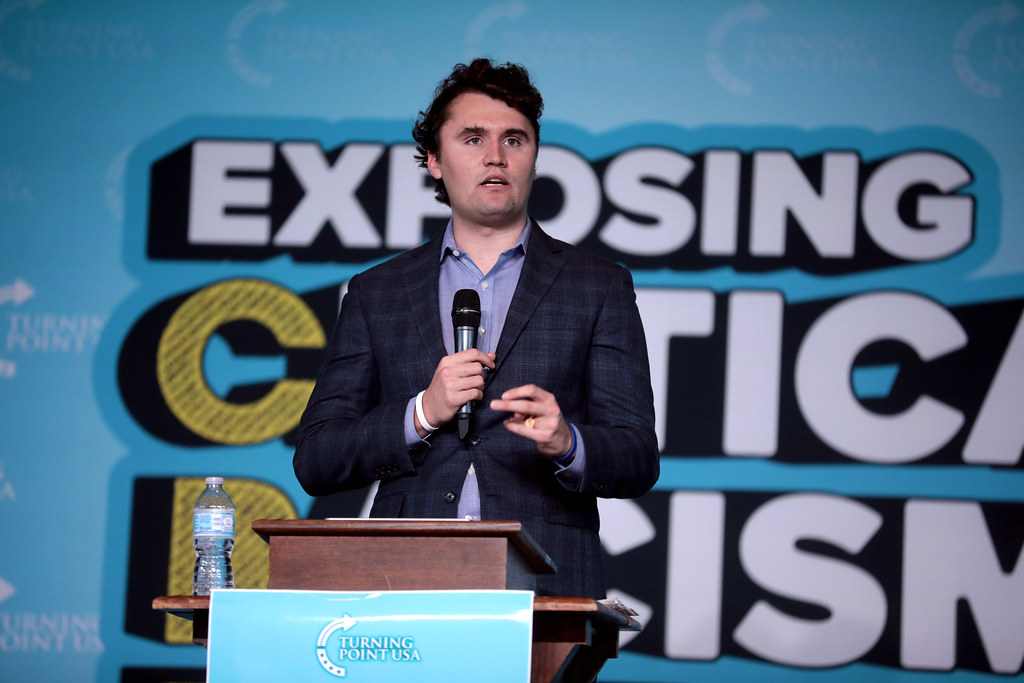
8. **Kirk’s Distinctive Political Philosophy and Christian Conservatism**Charlie Kirk personified a pugnacious, populist conservatism that became central to the Republican Party under Donald Trump. He presented himself as an unabashed Christian conservative who frequently made provocative statements on gender, race, and politics. Kirk’s popular podcast and radio show often displayed an “apocalyptic style,” particularly evident in his characterization of the choice between Trump and Kamala Harris as a “spiritual battle.”
His evangelical Christian beliefs were not merely an aspect of his personal life but were deeply intertwined with his political perspective, informing his public stance that there was no true separation of church and state. Kirk referenced the “Seven Mountain Mandate,” a theological framework specifying seven societal areas where Christians are urged to lead: politics, religion, media, business, family, education, and entertainment and the arts. This belief system guided his ambition to transform American culture.
Kirk advocated for a new conservatism that prioritized freedom of speech, challenged the power of “Big Tech and the media,” and aimed to center working-class Americans, moving beyond the traditional D.C. establishment. He articulated this vision as the “MAGA doctrine” – a “doctrine of American renewal, revival, one that America is the greatest country in the history of the world” – in his 2020 Conservative Political Action Conference opening speech. He questioned whether the conservative movement would revert to “the party of the status quo ruling class.”
Furthermore, Kirk’s activism heavily focused on what he perceived as “rampant Marxism and gender ideology on college campuses.” He actively encouraged students to report professors suspected of embracing such ideas, extending this appeal to parents and grade school students. This strategy underscored his mission to confront and reshape the academic landscape to align with his conservative and Christian worldview.
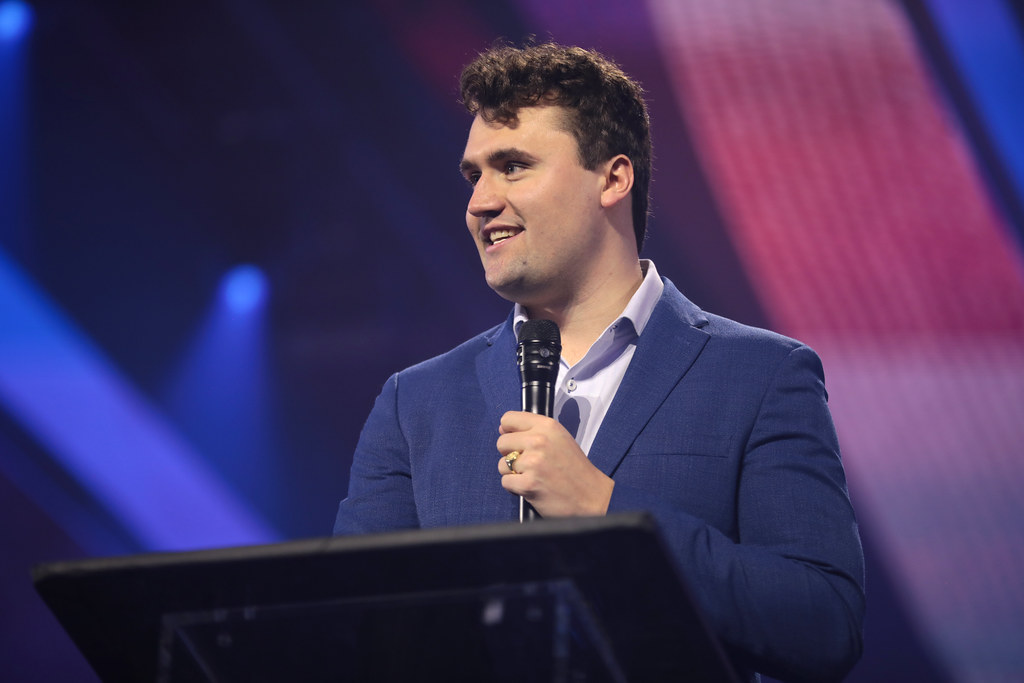
9. **Kirk’s Controversial Rhetoric and Divisive Stances**Despite his charisma and ability to mobilize, Charlie Kirk’s political activism was frequently marked by controversial rhetoric that often drew criticism, even from some within conservative circles. He tweeted relentlessly with a “brash right-wing spin,” making inflammatory comments concerning Jewish, gay, and Black people. While some found his approach distasteful, Mr. Trump often retweeted him, indicating an alignment in communication style.
Kirk’s willingness to engage in the “culture wars” was a defining characteristic of his public persona. During the early days of the pandemic, he was swift to attack the World Health Organization. In 2021, while intensifying his criticism of the Black Lives Matter movement on college campuses, Kirk controversially referred to George Floyd, whose 2020 murder sparked widespread protests, as a “scumbag.” He also amplified the “Great Replacement” conspiracy, a belief that there is a plot to replace White people with minorities, and promoted anti-trans rhetoric.
His confrontational approach extended to election integrity debates. Kirk initially pushed “false claims about voter fraud” following Mr. Trump’s loss in the 2020 presidential election. However, he later underwent a significant tactical shift, urging Republican voters to embrace mail-in voting methods for the 2024 cycle. He acknowledged that the loss of Kari Lake in the 2022 Arizona gubernatorial race prompted “introspection on our team,” leading him to conclude that “losing feels a lot worse” than not embracing “Election Month.”
Kirk’s public appearances also provided platforms for statements that underscored his provocative style. At an event in Mankato, Minnesota, he remarked, “Just don’t totally mess up this state. It was built by wonderful Scandinavians, and it seems as if it’s being destroyed now, rather intentionally.” Such statements, delivered with confidence, contributed to his image as a fierce proponent of his particular brand of conservatism, unafraid to challenge prevailing narratives or societal norms.
Read more about: Unpacking the Outcry: TMZ’s Mea Culpa After Laughter Disrupts Charlie Kirk Assassination Coverage

10. **The “American Comeback Tour” and His Approach to Campus Engagement**Charlie Kirk met his untimely end while engaged in the very activity that defined his political force: rallying the right on a college campus. His appearance at Utah Valley University was the kickoff for a planned series of college engagements, dubbed “The American Comeback Tour,” designed to take his message from Colorado to Virginia. This tour was emblematic of his strategy to directly confront and influence young people on what he considered liberal-leaning campuses where many Republican activists hesitated to tread.
His campus appearances were meticulously crafted, far from impromptu speeches. Turning Point USA was renowned for its events, which frequently incorporated “strobe lighting and pyrotechnics,” alongside “slick backdrops and high-value productions.” These efforts aimed to make his events not only compelling and visually engaging but also accessible to a youth audience accustomed to polished media.
Kirk’s approach to campus engagement was characterized by a readiness to debate and defend his viewpoints, often against a significant liberal opposition. Last year, in a social media program titled “Surrounded,” he faced off against 20 liberal college students, openly defending controversial positions such as the belief that abortion is murder and should be illegal. This confrontational, yet purportedly intellectual, engagement was a hallmark of his strategy.
A staunch supporter of gun rights, Kirk’s views on the Second Amendment were also frequently aired during his campus appearances. At a Turning Point event in Salt Lake City in 2023, he articulated, “I think it’s worth to have a cost of, unfortunately, some gun deaths every single year so that we can have the Second Amendment to protect our other God-given rights.” He acknowledged that while gun deaths could be reduced, they would “never go away,” a perspective that generated considerable discussion and solidified his stance on a highly divisive issue.
Read more about: Erika Kirk Breaks Silence: A Widow’s Vow to Uphold Charlie Kirk’s Legacy and Mission Amidst National Mourning
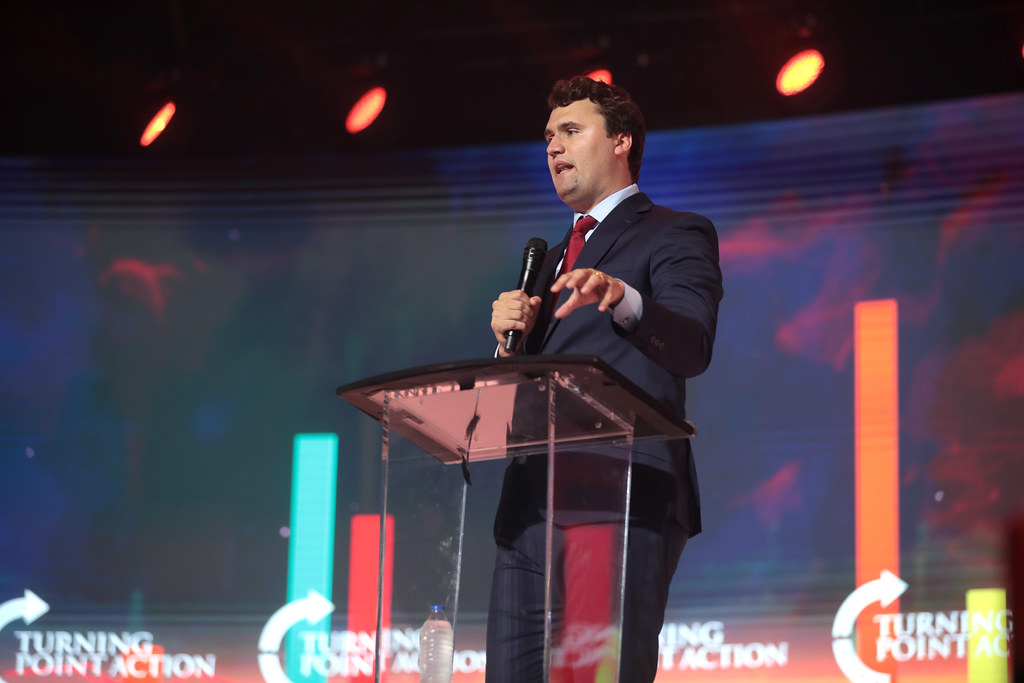
11. **Charlie Kirk’s Assassination Amidst Escalating Political Violence**Charlie Kirk’s assassination tragically occurred within a broader, concerning context of escalating political violence across the United States. His death marked one of an increasing number of attacks targeting political figures, an unsettling trend that has recently included the assassinations of a Democratic state lawmaker and her husband in Minnesota in June, as well as two attempted assassinations targeting President Trump in 2024. This pattern has profoundly unsettled the nation.
The incident at Utah Valley University prompted immediate and widespread condemnation from across the political spectrum, with leaders emphasizing the imperative to reject violence in political discourse. Former President Barack Obama, a frequent antagonist of Kirk, expressed prayers for Kirk’s wife and two young children, stating, “This kind of despicable violence has no place in our democracy.” Similarly, former President Joe Biden asserted, “There is no place in our country for this kind of violence. It must end now.”
Other prominent figures echoed these sentiments, underscoring the gravity of the situation. Former Vice President Kamala Harris expressed deep disturbance, proclaiming, “Political violence has no place in America. I condemn this act, and we all must work together to ensure this does not lead to more violence.” Gabrielle Giffords, the former Arizona congresswoman who survived an assassination attempt in 2011, conveyed her horror, stressing that “democratic societies will always have political disagreements, but we must never allow America to become a country that confronts those disagreements with violence.”
On Capitol Hill, House Speaker Mike Johnson called for a moment of silence and highlighted the alarming normalization of political violence. He urged every political figure and platform holder to unequivocally state that disagreements can be settled civilly. Johnson further indicated a “desire” in Congress for enhanced security measures following Kirk’s shooting, reflecting a growing concern about the safety of public figures in the current volatile political climate.
Read more about: U.S. Navy’s Caribbean Operations: An In-Depth Look at Vessel Interdictions, Escalating Tensions with Venezuela, and Legal Scrutiny
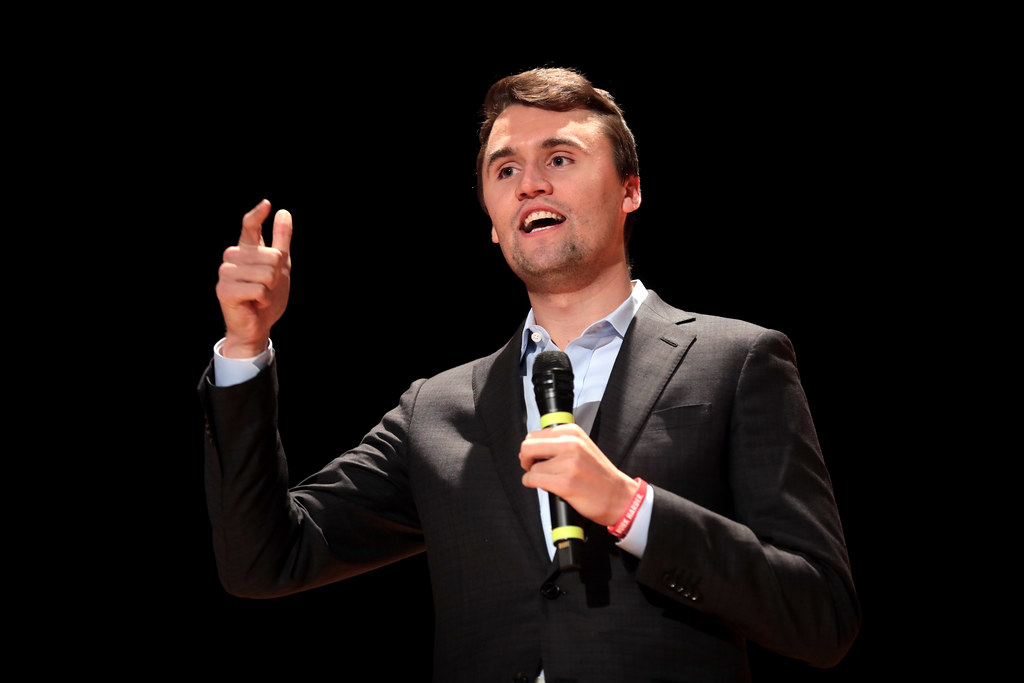
12. **A Legacy of Impact and Lingering National Questions**Admirers of Charlie Kirk, even those who might have disagreed with his confrontational rhetoric, frequently stressed his genuine relish for debate and the free exchange of ideas. William Wolfe, executive director of the Center for Baptist Leadership, posted on X that Kirk’s “entire project was built on reaching across the divide and using speech, not violence, to address and resolve the issues!” Republican Rep. Anna Paulina Luna of Florida reflected on Kirk’s formative influence on her own political journey, underscoring the importance of such challenging conversations.
Kirk’s death leaves behind a complex legacy, defined by his ability to mobilize a generation of conservatives and his unyielding commitment to his political convictions, despite the controversies he ignited. He was a prolific media personality, author of several books, and the host of “The Charlie Kirk Show,” a daily conservative talk radio show that reached millions of followers. His impact on the modern conservative movement and his role in shaping the pro-Trump agenda are undeniable.
The assassination plunged his personal life into tragedy. Kirk is survived by his wife, Erika Lane Frantzve, a podcaster herself, and their two young children. Turning Point USA confirmed his death with a poignant religious tribute, praying “May he be received into the merciful arms of our loving Savior, who suffered and died for Charlie.” His passing at just 31 years old cut short a burgeoning career that had already left an indelible mark on American politics.
The ongoing investigation, culminating in the arrest of 22-year-old Tyler Robinson, seeks to provide answers to the immediate circumstances of the shooting. However, Kirk’s assassination has ignited a far broader national conversation about the tenor of political discourse, the escalating risks faced by public figures, and the deepening polarization within American society. His death stands as a stark reminder of the profound challenges to maintaining civil dialogue in an increasingly volatile political landscape.
Read more about: When Main Street Becomes Massacre Street: 6 Real-Life American Small-Town Tragedies That Unleashed Cinematic Horrors
As the nation grapples with the profound implications of Charlie Kirk’s tragic assassination, his life and work serve as a potent symbol of contemporary American political dynamics. From his audacious entry into conservative activism as a teenager to his pivotal role as a Trump confidant and a vocal proponent of a distinct Christian conservative ideology, Kirk embodied a transformative force. His death at a campus event, intended for the very dialogue he championed, underscores the urgent need for a societal re-evaluation of how political disagreements are confronted and resolved. The questions surrounding his demise extend far beyond the immediate investigation, challenging Americans to reflect on the trajectory of political engagement and the future of civil discourse in a deeply divided nation.



